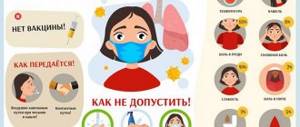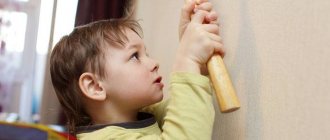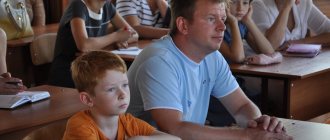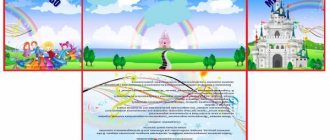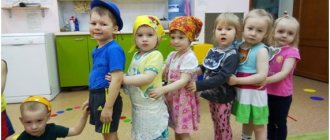Consultations for parents of primary schoolchildren. consultation (grades 1, 2, 3, 4) on the topic
What rights should a school provide to students?All relationships between the student and the school are built on the basis of the Law of the Russian Federation “On Education” and the School Charter. In accordance with these regulations, the Constitution of the Russian Federation, other laws, - norms of international law, every student has the rights to: - respect for his human dignity; — receiving free secondary education; — participation in school management; — expression of one’s opinion; — receiving additional (including paid) educational services; — free attendance at events not provided for by the curriculum; — choosing, together with parents, the form of education; - transfer to another educational institution.
What are the rights and responsibilities of the class teacher in relation to the students of the class?
The class teacher is not a guardian, not a nanny, not an entertainer. He is the school's representative in its relationship with your parents. The class teacher informs them about all the events happening in the school and class. It is the class teacher who informs your parents about your academic progress, missed lessons, behavior, relationships with friends and much more that is related to your life at school. The class teacher organizes the educational activities of the class, is responsible for filling out the class register, he has the right to hold class and parent meetings, invite parents to a conversation, keep entries in your diary, and even come to your home to talk with you and your parents.
Can a teacher interfere in a student's personal life?
No. Every citizen of Russia, including school students, has the right to privacy. This is one of the most basic human rights, it is enshrined in Article 23 of the Constitution of the Russian Federation. But what is considered a student’s personal life? This is a more difficult question. Some people think that this is not only life outside the walls of school, but also attitude to studying, doing homework, behavior in class, etc., forgetting that there is a constitutional duty to study, the requirements of the Law “On Education” and the School Charter that need to be carried out. There is no indication in any law of what is considered a person’s personal life. The law only establishes the limits of privacy, calling the disclosure of personal and family secrets, violation of the confidentiality of correspondence and telephone conversations unacceptable. It is customary to classify a person’s personal life as his family relationships, friendships, likes and dislikes, affections, and hobbies. The teacher should not intrude into these areas of the student’s life. But sharing his observations and doubts with parents is his right and duty, since in school it is the teacher who is responsible for the life, health and upbringing of the student.
Does a teacher have the right to discuss a student’s personal problems with colleagues? A teacher should not discuss a student’s personal problems with other teachers to satisfy his own curiosity. However, there are laws, for example, the Law of the Russian Federation “On Basic Guarantees of the Rights of the Child in the Russian Federation,” which require schools to intervene in the lives of children in difficult life situations, socially dangerous situations (living in dysfunctional families, committing offenses, etc.) . Here, discussing the student’s problems with colleagues is simply necessary, but this should be done solely in the interests of the child, without infringing on his rights and to the extent permitted by law.
Can a teacher read notes taken from children? A child, like any citizen of Russia, has the right to personal privacy. This right is also enshrined in the Constitution and is one of the fundamental human rights. Therefore, not only the teacher, but also other people, for example, classmates, do not have the right to read other people's notes and, especially, to disclose their contents. But in order for the note to fall into the hands of the person to whom it is addressed, you probably should not abuse the teacher’s patience and try to pass it on during class or throw it across the class. After all, this is a direct violation of discipline.
Can a teacher share personal information about a student, discuss extracurricular behavior and personal problems in front of the class? The teacher does not have the right to disseminate (including discuss) information about the relationships in the student’s family, the state of his health and the health of his parents, his views, affections and hobbies, his property, parents’ earnings and much more that is not directly related to studies and behavior at school.
Does the class teacher have the right to force students to go to the theater with the class?
The class teacher does not have the right to force students to visit the theater, museum, zoo and other similar institutions. The Law of the Russian Federation “On Education” states that students of civilian (non-military) educational institutions have the right to freely attend events not provided for in the curriculum and class schedule. The curriculum in this case is an official document approved by the school administration, which contains a list of all subjects taught at the school and the number of hours of teaching time allocated to these subjects.
Is the student required to clean the school grounds?
In the school charter, in the section Student Responsibilities, there is a clause about the obligation to participate in self-service work, which includes one-time “general” cleaning of the school and its territory.
If a student spoils a good relationship with a teacher, can he be expelled from the class (school)?
A damaged relationship with a teacher is not a reason for expelling a student from the class and, especially, from the school. Transfer of a student from one parallel class to another is carried out only with the consent of the parents or at their request. We should also not forget about your right to express your own opinion. Let me remind you that the opinion of a child who has reached the age of ten must be taken into account when deciding an issue affecting his interests. And you can expel from school only for committing illegal actions, gross and repeated violations of the school’s Charter, and only for someone who is already fourteen years old.
Does a student have the right to transfer from class to class? Yes. Such a transfer is carried out upon a written application from the student’s parents.
Who can transfer a student from a class to another parallel class or from group to group?
The issue of transfer from class to class or from group to group (in a foreign language) is decided only by the school director with the consent or at the request of the student’s parents.
Does the school have the right to introduce paid educational services?
The right to organize paid additional educational services for schools is granted by the Law of the Russian Federation “On Education”. These can be various clubs, sports sections, studios, courses, classes in which are not included in the school curriculum. You have the right to use these services. It is a right, not an obligation. Everything that you are required to learn at school in accordance with the school curriculum is taught free of charge. The organization of paid educational services must be properly formalized. Our school can provide paid educational services, as it has permission (license) to do so. An agreement for the provision of these services is signed with parents. It goes without saying that such an agreement can be terminated at any time at the request of the parents.
Does the school have the right to conduct exams in non-graduating classes?
The right to establish the procedure for conducting intermediate certification of students (for example, to introduce exams) belongs to the school according to its Charter in accordance with the Law of the Russian Federation “On Education”.
Are teachers required to provide extra tutoring to low-performing students or those who miss classes due to illness?
It is the teacher’s right, not his responsibility, to provide additional tutoring to those who are failing or who have missed classes due to illness. The teacher is not paid for this work.
Is a student required to sit in the gym during a physical education lesson if he is exempt from classes for health reasons for several days and has a medical certificate confirming this?
The student is exempt from physical education classes, and not from attending class. The school is responsible for the life and health of students during their stay at school, that is, during the time allotted for all lessons on a given day in accordance with the schedule. Therefore, it is impossible to simply allow a student to leave lessons for unknown destinations. This issue is decided by the school director at the request of parents.
Can a student take classes from another teacher in a subject?
Theoretically it can. But how can you do this practically, without missing scheduled lessons in your class, the attendance of which is mandatory? In addition, it is necessary to obtain consent for this from the teacher and the school principal.
Does a teacher have the right to give a student a grade of “2” for not being in class?
Any grade is an indicator of the student’s level of knowledge in the subject, so the teacher has no right to give a bad mark for absence from class. But if a student missed a lesson without good reason, and there was a test during the lesson, then a grade of “2” can be given for the work that was actually not completed.
Should a teacher inform parents about student misconduct at school?
The student’s parents, on the basis of the law, are responsible for the upbringing and development of their children. They are obliged to take care of the health, physical, mental, spiritual and moral development of their children. Parents have a priority right to raise their children over other people. From this, as you guessed, it follows that teachers are obliged to report children’s misdeeds to parents.
Consultation for parents on the topic: “Joint work of parents and children.”
Consultation for parents
“Joint work of parents and children”
We adults, parents and teachers, of course, want our children to become real people, to love work, and to be happy.
The famous teacher of our time, V. A. Sukhomlinsky, deeply believed in the ennobling power of work: “If a child has put a part of his soul into working for people and has found personal joy in this work, he can no longer become an evil, unkind person.”
The attitude towards work largely depends on the importance we, adults, attach to it.
Mastery of skills also has a direct impact on the formation of personal qualities, such as independence. The child becomes able not only to wash himself, undress, wipe the dust, put toys away, etc., but also to help other children. This allows him not only to establish himself in the team as a skillful and responsive comrade, but also to gain confidence in himself and his capabilities.
Labor skills play an important role in developing in children the right attitude towards their own work: readiness to participate in any work, regardless of its attractiveness, to complete the task, and to make labor efforts. All this creates a favorable basis for the development of such qualities as responsibility, initiative, dedication, perseverance, and determination.
Mastering labor skills makes it possible to participate in common labor. Under these conditions, children develop an active position in the team, the ability to work in concert, with common efforts to bring the job to the end, to help their comrades, and to work with maximum effort.
The tasks of labor education are related to the content of labor (the system of labor actions) and the goals of education (the ideal of behavior at work). But skills are not formed for the sake of skills; they are an important means of realizing the ultimate goal of labor education - the formation of readiness to work for the common benefit. Therefore, labor training and labor education are the task of solving them together. Form new skills and strengthen existing ones; cultivate interest in work; the ability to achieve results on your own, to awaken and develop a feeling of satisfaction with your work, the confidence that if you think hard and try, you can do a lot yourself and help others.
When organizing work activity, it should be remembered that work must be expedient, useful, effective, and feasible. Children must understand the social benefits of work; understanding the social motives of labor encourages even unattractive types of work to be performed willingly.
Children should be able to perform various types of work: self-service, household work, work in nature, manual labor. Exercise self-control. This contributes to the child’s self-affirmation, awareness of his skills, and inclusion in real work relationships with adults and peers.
We must encourage children to, on their own initiative, take on the work that ensures play: making toys and equipment, and repairing them.
It should be remembered that work must be expedient, useful, effective, and feasible. Children must understand the social benefits of work; understanding the social motives of labor encourages even unattractive types of work to be performed willingly.
Self-care is work aimed at satisfying everyday personal needs. Labor education of children begins with self-service: washing, dressing, taking off and putting on clothes in a certain order, unbuttoning and fastening buttons, folding clothes. In self-care, the child has a specific goal, the achievement of which is understandable to the child and vital for him. The result that he achieves in self-care is obvious and opens up for him certain prospects for joint activities: once he gets dressed, he can go for a walk, put away his toys, he can do drawing, etc.
Serving yourself. The child exhibits certain physical and mental efforts; They are more noticeable in the child’s activities, the younger he is, the less the child has the skills of dressing, washing and eating independently.
Self-care for older children - including them in teaching younger children: brother, sister basic skills. Thus, they help children master some rules of self-care. This is very important, because constant assignments increase the sense of responsibility, enable children to feel the importance of their work for others, and develop the habit of work effort necessary for studying at school and in life.
Household and household work. Children carry out imitation of adults.
Parents' task:
– support and encourage the mood “I am myself!” ", as well as teach children purposeful action. When encouraging a child to work, it is important that he sees both the purpose of the action and the result of the work. (mom washed the floor, walls, doors, they became clean). Children learn that adults care about them and need help.
household labor;
— creates an opportunity for the systematic involvement of children in work, instilling in them habits of daily work, cultivating such personality traits as independence, caring for each other, providing services to adults, and the desire to do something pleasant for them.
After eating, help your mother or grandmother put away the dishes; at the end of the game, put the toys back in place, wash the brushes, glasses, wash the rags used for gluing and drawing, wipe the tables after work; take part in the daily cleaning of the room (wipe furniture, wash toys, etc.) Children must do this carefully and diligently;
Thus, in the process of household labor, the tasks of developing not only labor activity, but also the upbringing of the personality of a preschooler are solved.
Children's work in nature:
— Creates favorable conditions for physical development, improves movements, stimulates the action of various organs, strengthens the nervous system. In this work, as in others, mental and volitional efforts are combined. Labor in nature is associated with expanding children’s horizons, obtaining accessible knowledge, for example, about soil, planting material, labor processes, and tools. Based on his own experience, the child is clearly convinced of the needs of living organisms. For example, children learn that moisture is a source of nutrition, children begin to understand the dependence of the body on the environment, the sequence of growth and development of animals and plants (emergence of foliage, flowering, fruiting; in the process of labor they learn patterns and connections (sequential, temporary, causal, existing in the life of nature.
With the help of adults, feed fish, birds, a turtle, water indoor plants, wipe large leaves, sow large flower seeds, plant onions, water plants in the beds, and collect vegetables. loosen the soil, feed the animals, change their water; They grow vegetables on the plot together with adults. At the same time, children develop perseverance and the habit of making efforts to achieve their goals. Children must be taught to work in all seasons. In the fall, on their plot, children can harvest vegetables, collect seeds, dig up plant bulbs, rake leaves, take part in transplanting plants from the ground into flower pots, digging ridges and flower beds, planting trees and shrubs; take part in the preparation of vegetables and fruits for the winter at home. In winter, remove snow from paths, feed wintering birds, care for the inhabitants of a corner of nature, and grow food for them. In the spring, dig up, loosen the soil, make beds and flower beds, sow large and small seeds, care for plants in the garden, garden, and flower garden. Loosen the soil, water, weed, thin out, tie up plants, harvest. Know how to properly use a shovel, scoop, rake, and watering can.
It is important to form the habit of working at one’s own request, and not just at the suggestion of parents, to do work diligently, carefully, to take care of materials and objects of labor, to put them away after work, to educate them to participate in joint work activities on an equal basis with everyone, without avoiding unpleasant work.
Manual labor. Children making toys and objects from various materials. In the process of work, children get acquainted with the simplest technical devices, master the skills of working with certain tools, and learn to treat materials, objects of labor, and tools with care. Children learn through experience basic concepts about the properties of various materials. Paper: can be folded, cut, glued. Wood can be: sawed, planed, cut, drilled, nailed, glued.
Working with natural materials - leaves, acorns, cones, birch bark. bark, etc. - gives parents the opportunity to introduce children to the rich variety of its qualities: color, shape, hardness. When coming up with the topic of his work, the child creates and fantasizes. He learns to distinguish familiar objects in the bizarre forms of natural material and creates fantastic images. This develops ingenuity, intelligence, creative imagination, and the desire to create.
Works of fiction (stories) can be of great help:
L. Voronkova “Masha the Confused”,
V. Oseeva “Medicine”,
poems: K. Chukovsky "Moidodyr"
A. Barto “Dirty Girl”,
Z. Alexandrova “What you took, put it back”, “Topotushki”,
Y. Tuvima “Letter to all children on one very important matter”, I. Muraveyka “I myself”,
S. Kapustikyan “Who will finish drinking sooner”, etc.
Consultation for parents on the topic: Labor education in the family
Consultation for parents.
Topic: “Labor education in the family” Author: Lyubov Nikolaevna Komova, teacher at MBDOU “General developmental kindergarten No. 90”, Cherepovets. Description of the material: This material is compiled in the form of recommendations for the labor education of preschool children. The consultation will be useful for educators and parents of children aged 4 to 7 years.
Goal: developing the competence of parents in the issue of labor education. Objectives: To attract the attention of parents to the importance of labor education in the life of a child. Arouse parents' interest in joint work with their child at home. Progress: Labor education
is an important means of comprehensive development of a child’s personality. Hard work is not given by nature, but must be cultivated from early childhood. The main purpose of work is its influence on the child’s personality. Reasonably organized work strengthens the physical strength and health of the child. Movements become more confident and accurate. As he acts, the baby becomes more and more oriented in space. Work also has a significant impact on the mental development of a child. It develops intelligence, curiosity, initiative, active perception, observation, attention, concentration, and trains memory. And work also develops thinking - the child has to compare and contrast objects and phenomena with which he deals. Emphasizing the invaluable importance of work for the comprehensive development of a child’s personality, I bring to your attention some recommendations for labor education in the family. The work of children in the family must be feasible. It is not at all necessary to entrust cleaning the entire apartment to the baby, but asking him to wipe the dust from the windowsill is quite possible. Use the opportunity - interest. Any child is interested in working with a vacuum cleaner. He won’t work much, of course, but he will gain some skills.
At the first stages, work activity is not stable; it is closely related to children’s games. The connection between work and play is important in preschool age - play images help children do work with greater interest. It is easier to teach a child to work while playing. For example, your house is a spaceship, and it needs to be cleaned before departure. Young children easily humanize inanimate objects - this quality can be used effectively. Tell your child on behalf of the toy that it is cold for her to lie on the floor, or let the bear ask to be put on the shelf.
Never force your child to help you. Coercion is disgusting. Moreover, work done under duress is not of high quality. Help must come from a pure heart. It is clear that the child may not notice that it is difficult for you and that you would not mind accepting help from him. Here you can cheat a little: groan and groan: “Oh, how tired I am,” “Oh, my back hurts.” It’s a rare child who doesn’t realize that his help would be in place. What kind of help with housework can preschool children provide? The range is quite wide. In addition to cleaning his room, the baby can help his mother prepare for dinner, for example, in setting the table. The child is quite capable of watering indoor plants and feeding pets.
Remember, when giving instructions to a child, it is necessary to clearly explain what is being done, why, and why. The child needs to know why he should perform certain tasks and what result should be achieved. This is the only way for preschoolers to form an idea of the need for these actions. Therefore, we always need to explain why we are working. For example, if flowers are not watered, they may die; If we don't wash the dishes, we'll have to eat from dirty dishes. The work of a child should not go unnoticed by adults. Any work should be encouraged: thank the child, praise, appreciate his efforts. Even if the child did something wrong. And if he breaks something, don’t even think about scolding him, because the child wanted to help. Work and its results must be accompanied by positive emotions. [Gradually, the child develops a positive attitude not only to those types of work that are associated with play, but also to those that are not so interesting, but necessary, that is, there is an awareness of the importance of work activity. The activities of adults serve as role models for children. If the adults themselves work with enthusiasm, then the child will strive for the same. When a child sees that work for adults is a heavy burden, then he himself will have the same attitude. Therefore, parents themselves should take on any work with desire, diligence and responsibility, setting a good example for their children. Teach your child to complete the work he has started, do not rush or rush the child, know how to wait until he completes the work himself.
In parallel with labor education, it is necessary to cultivate respect for the work of adults and careful attitude towards its results. Words of notation, as you know, are unconvincing methods for a child. He must see the good example of adults. Only the systematic fulfillment of work duties will help to develop preschoolers’ organization, responsibility, and habits of work effort, which is so important for preparing a child for school.
We recommend watching:
Education and development of preschool children. Tips for parents Labor education in kindergarten Labor education in kindergarten Labor education of preschool children
Similar articles:
Instilling responsibility in organizing the work activities of preschool children
Entertainment in the senior group of the kindergarten "People's Labor"
Summary of a lesson on labor education in the preparatory group. Inventions and achievements of man

